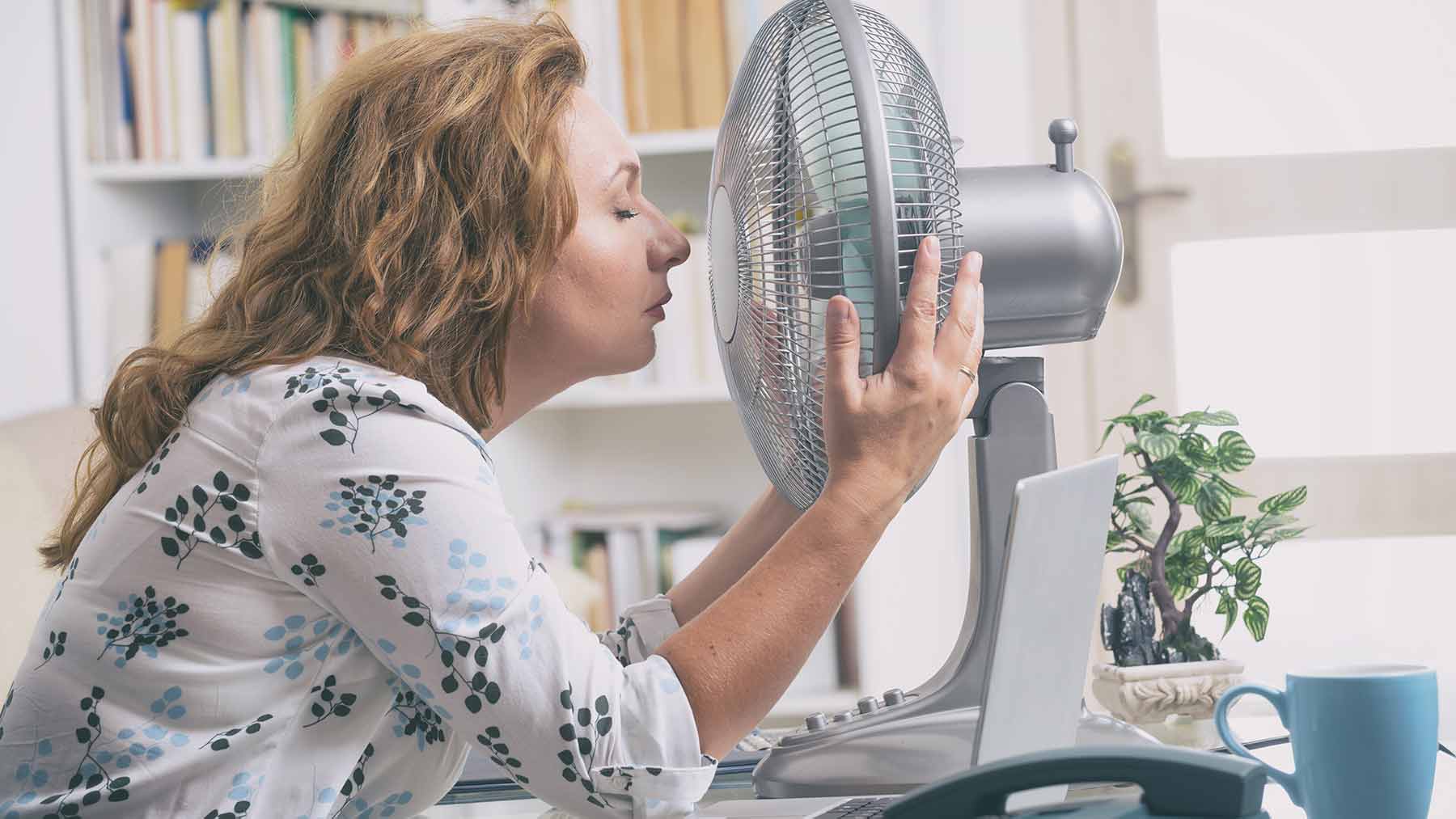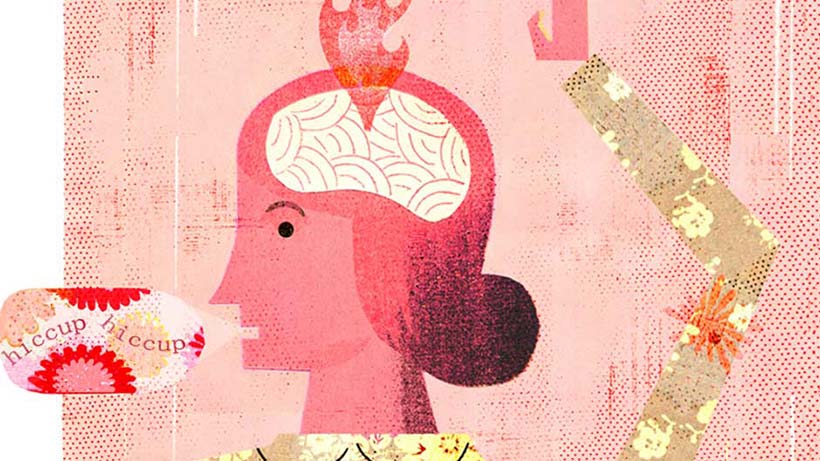Are there options for hot flashes other than hormone therapy?

When women reach a certain age, many start to experience one of the rather unpleasant symptoms of menopause – hot flashes.
It’s when a sudden, intense warmth comes over your face, neck and chest, lasting only a few seconds. Your heart races, your skin reddens and your body sweats. Unfortunately, these symptoms can last up to seven years.
Hormone replacement therapy is one option for the short-term treatment of menopause symptoms, but here are some other options as recommended by the North American Menopause Society (NAMS).
Recommended
Cognitive behavioral therapy and clinical hypnosis are two drug-free ways to manage symptoms. The first involves structured psychotherapy that helps better manage your body’s stress response. The latter places someone in a mental state than can help you cope with stress, anxiety and pain.
Low-dose paroxetine salt is the only U.S. Food and Drug Administration-approved non-hormonal medication for hot flashes. Other medications such as gabapentin, pregabalin, clonidine and some antidepressants have been proven at least somewhat effective for the treatment of hot flashes when compared with a placebo.
Recommended with caution
Proceed with caution if weight loss or mindfulness-based stress reduction are being considered for the specific treatment of hot flashes. Both are good for overall health and well-being but scientific studies found they don’t improve hot flashes.
Other potentially helpful therapies include S-equol (derivatives of soy isoflavones) and anesthetic injections into the stellate ganglion nerves in the neck. Small studies have had promising results, but more research is needed before they’re widely recommended for treatment.
Not recommended
If searching the internet, there’s a long list of supplements and herbal therapies being touted as effective treatments for hot flashes. They include: black cohosh, crinum, dioscorea, dong quai, evening primrose oil, flaxseed, ginseng, hops, maca, omega-3s, pine bark, pollen extract, puerperia and Siberian ginseng. Be careful, though. These supplements and herbal therapies either haven’t yet been studied for safety and effectiveness or currently available studies have not demonstrated effectiveness. In addition, many of these interfere with the effectiveness of other prescription medications.
Cooling techniques and avoidance of triggers are harmless ways to combat hot flashes, but haven’t been found to be effective in scientific studies so they aren’t recommended by NAMS for treatment.
Yoga, exercise and paced respiration have been studied. They weren’t found to be effective for hot flashes. However, they may significantly help with other menopause symptoms such as weight gain and mood.
Final considerations
Each woman’s menopause experience is unique and the severity of symptoms varies. It’s important to target the symptoms that are most bothersome.
If hot flashes are the primary concern, there are several good treatment options. Deciding between hormonal or non-hormonal therapies will depend on the symptom severity, past medical and surgical history, family history and patient preference after weighing individual risks and benefits.
There’s also the option to do nothing. The biggest problems with hot flashes are difficulty sleeping and the potential social embarrassment caused by the heavy sweating. There are no known health risks associated with not treating hot flashes.
I suggest women consider the menopause transition as an opportunity to improve overall health – optimize BMI, start exercising regularly, incorporate stress reduction into a daily routine, establish good dietary practices and get regular health screenings.
Cynthia Evans is an Ob/Gyn at The Ohio State University Wexner Medical Center.




